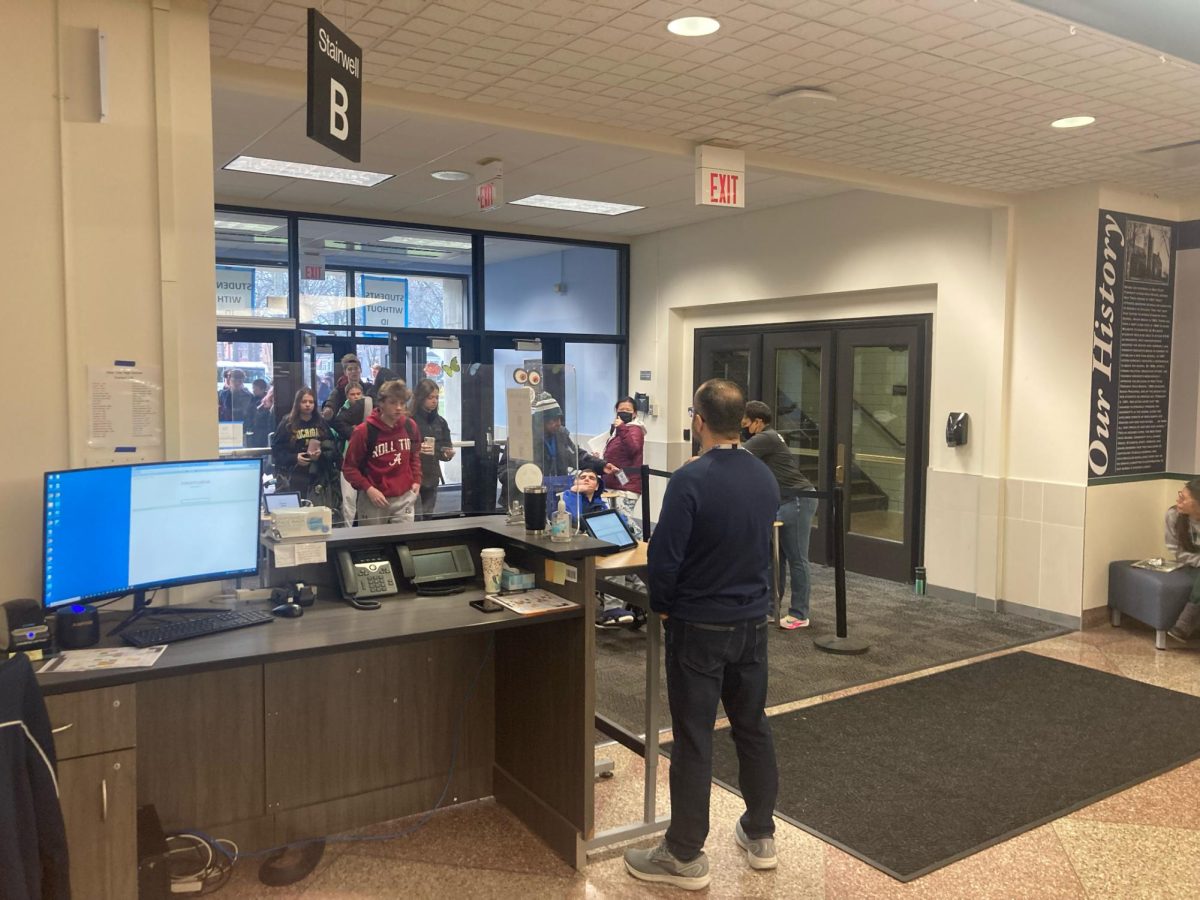New Trier High School’s absence rates have decreased dramatically compared to last year, with new procedures and an increased focus on student attendance. The share of students who were chronically absent over the first 50 days of school is down to 8.5% this year, a considerable drop from 24.1% the previous year.
This data was collected over the course of the first few months of school and presented at the monthly New Trier Board of Education meeting on Nov. 13. The report also noted that the share of students with no absence issues—defined as having attended greater than 95% of school days—has increased to 67.1% versus 47.3% last year.
Associate Principal for Student Service Chris Mitchell is encouraged by the numbers and attributes it to increased communication and collaboration between students and staff.
Beyond the data, he sees the new changes as addressing why attendance is so important.
“More than that, we’re concentrated on that experience at school, that experience of what you miss when you’re not here,” Mitchell said. “If school was simply meant to be a list of tasks that you can complete at your own whim, [we] could not come to school and get all that stuff done, but that’s not what it’s meant to be.”
In his role, Mitchell supervises both the adviser program and the new Graduating Class Teams, which have worked together on the issue of attendance. One change they have made is establishing different thresholds of attendance based on how many classes students have missed.
“The whole premise of this early detection piece was not to worry people, but it was for us to create an awareness,” Mitchell said.
He also noted that now, at the end of first semester, is a good time to reflect on the changes that have been made and how they are working out. In addition to the data, the attendance committee is working to receive feedback from advisers, teachers, students, and families.
Junior Aidan Andrew noted that, while he does not typically struggle with attendance, he’s seen evidence that the policy is working.
“I’ve noticed from many students who I used to hear talk about skipping for no reason that now feel compelled to stay,” Andrew said.
One common concern among students is feeling pressure to attend school even when they don’t feel well.
“I got sick a couple times last year, and I was kind of just waiting it out until it got so bad that I just could not be in school any longer,” Andrew said. “I’ve definitely felt pressure to attend school when I probably should be absent.”
Mitchell emphasized that students who are sick should not come to school and that staff members want to do everything possible to help assist students who missed school due to illness.
“If you show progress to your adviser chair, your assistant principal, or your adviser, they’re all willing to work with you and make sure you’re successful,” Mitchell said. “If you’re not taking advantage of a system, then we definitely want to work with you.”
For this reason, the teams working on absenteeism have tried to be mindful of students, not just through an academic lens, but also through a social-emotional lens.
“We were very thoughtful not to be an automated system that just pushed out letters to families because we knew there’s always a human component to everything we do,” Mitchell said.
Beyond students missing school due to illnesses, the adviser chairs and assistant principals also want to understand why students may be missing certain classes and how they are managing their grades. But the ultimate goal is to get kids back on track and in school.
“Obviously, that’s part of it, the grade piece is part of it,” Mitchell said, “but the experience can’t be recreated.”
Mitchell, a former science teacher, said he’s seen the importance of connection and observation through labs, as an example.
Moving forward, Andrew sees room for improvement with the current attendance system and how it’s communicated.
“The way they explain it, it feels like it’s a lot more complicated than it actually is,” he said.
Mitchell also agreed that some changes need to be made.
“There will always be some challenges with an attendance system, like check in/check out, it’s not perfect yet,” Mitchell said. “We know it’s not, we’re trying to make it better.”
He highlighted the importance of finding a balance between accountability and support.
“The challenge really always comes in balancing supporting students and then developing them with the type of skills that they’re going to need to be successful,” Mitchell explained. “How to hit the sweet spot is what [we’re] trying to do.”







































